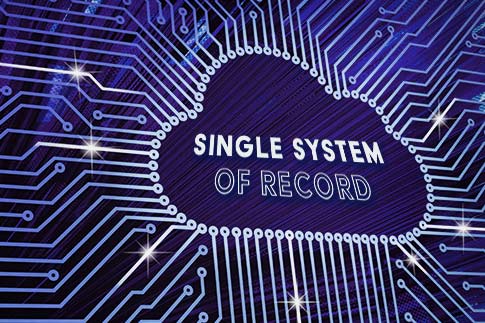The Benefits of Going Paperless
 If you didn’t catch our previous blog post, we talked about the history, benefits, and ultimately, the limitations of using spreadsheets to manage products across dispersed teams. Today, we’re taking a deeper look at the glaring inadequacies of using spreadsheets to manage product development and quality management, and how cloud-based product lifecycle management (PLM) solutions can offer something that spreadsheets simply cannot—the ability for your business to go paperless.
If you didn’t catch our previous blog post, we talked about the history, benefits, and ultimately, the limitations of using spreadsheets to manage products across dispersed teams. Today, we’re taking a deeper look at the glaring inadequacies of using spreadsheets to manage product development and quality management, and how cloud-based product lifecycle management (PLM) solutions can offer something that spreadsheets simply cannot—the ability for your business to go paperless.
How Spreadsheets Fall Short
Don’t get us wrong—spreadsheets have some redeeming qualities (e.g., free or almost free, familiar, easy-to-use). However, spreadsheets fall short in many other critical ways, including:
- Human error: Because spreadsheets are often difficult to analyze and troubleshoot, human error is likely to go undetected until the consequences are significant. For example, The British Government recently misplaced nearly 16,000 COVID-19 test results due to an Excel spreadsheet error.
- Information silos: This is quite problematic when it comes time to audit your product. With Microsoft Excel and Google Sheets, a local copy of a spreadsheet can be made, and new data can be added creating silos of information. The more people you have involved in editing and updating product information, the greater the risk of conflicting versions.
- Lack of context: Without proper context, varying teams across your organization will be left to put together the pieces. Spreadsheets cannot include all product design information—especially the latest versions. Due to this lack of context, the product development process becomes messy and inefficient.
- Limited collaboration capabilities: In today’s distributed work environment, multiple users within and outside of an office need to have access to the same documents simultaneously. Spreadsheets have limited sharing and permissions options, which then leads to limited collaboration capabilities.
- Simplistic security options: The need for security is paramount in today’s world. Most spreadsheets have simplistic security options that teams and organizations quickly outgrow. Spreadsheets are somewhat unsafe and therefore are at greater risk for data corruption or mismanagement of information. Spreadsheet files that contain sensitive or proprietary information may not be safe from hackers, even when password protected.
- Resource intensive: The use of spreadsheets requires significant time investments and resources to manually enter data, make updates, and search for information, taking away from more productive product work.
- Stand-alone: Spreadsheets cannot connect to other software systems that are key to your product processes such as component databases, computer-aided design (CAD), or enterprise resource planning (ERP)—nor are they connected to change management processes and associated product or quality records.
The Benefits of Going Paperless
 When spreadsheets were invented, they were—yep, you guessed it—paper ledgers. When we talk about “going paperless,” we mean moving to a system that no longer relies on multiple, disconnected spreadsheets with multiple owners, but a collaborative software solution that provides a single system of record for all product teams.
When spreadsheets were invented, they were—yep, you guessed it—paper ledgers. When we talk about “going paperless,” we mean moving to a system that no longer relies on multiple, disconnected spreadsheets with multiple owners, but a collaborative software solution that provides a single system of record for all product teams.
Advantages of using a Cloud PLM solution over spreadsheets:
- Ability to share information: Share information with internal team members, partners, and suppliers, controlling what they can see and edit.
- Ability to manage changes to your product record: Change-process control ensures product specifications, design, assembly instructions, test procedures, and packaging instructions are in sync and that these changes become part of the product record.
- Contains the latest product information: Provide controlled access to complete product information, including released revisions, pending changes, and past revisions, so product team members have the information they need.
- Ability to track compliance: You can establish and revise compliance processes. Maintain a history of user activity on procedures, so you have evidence that the users are using your organization’s defined standard operating procedure and strategies.
- Simplified integration: Cloud PLM connects to and integrates with other software systems that are key to product processes (e.g., component databases, CAD, ERP) simply and easily.
How To Get Your Team on Board
 With all the pitfalls and shortcomings of spreadsheets, you may be wondering why an organization would continue to use a tool with such limited capabilities. The answer is simple: Spreadsheets inspire devotion in many people. Changing over to a new solution comes with inherent risk and a learning curve to boot. Not to mention that changing to a new system may disrupt the production timeline, which could delay getting the right product to market on time.
With all the pitfalls and shortcomings of spreadsheets, you may be wondering why an organization would continue to use a tool with such limited capabilities. The answer is simple: Spreadsheets inspire devotion in many people. Changing over to a new solution comes with inherent risk and a learning curve to boot. Not to mention that changing to a new system may disrupt the production timeline, which could delay getting the right product to market on time.
When pitching a new system, here is how to ensure buy-in from power users, engineers, and execs alike.
- Secure and persistent: Protecting your product’s intellectual property (IP) is paramount, which is why most Cloud PLM solutions are designed to ensure integrity, security, and availability of customer data.
- A single source of truth: Provides a place for every team to track requirements, revisions, quality, and compliance under a single, unified system of record.
- Simple to use: Everyone from internal teams to external partners can immediately use a new Cloud PLM solution without burdensome training exercises or complex configurations.
Existing spreadsheet programs, such as Microsoft Excel and Google Sheets, reinforce silos and make your organization vulnerable to human error from within and threats from the outside world. Arena’s cloud-based solutions help empower your organization—not hold you back. We agree that switching to a new system can be a little scary, so we strive to remove all barriers to making the transition. With our unified PLM and quality management system (QMS) platform, we aim to transform your organization’s product development, supply chain management, and quality control processes from reactive to proactive.
Takeaways
A spreadsheet is an antiquated and simplistic way to manage complicated product development processes for today’s complex products. There are many reasons why spreadsheets fall short, such as lack of traceability, simplistic security options, and limited collaboration features that many teams quickly outgrow. That is why Arena PLM and QMS are the right software choices for the job—they deliver a scalable cloud solution to centralize your product information and enable cross-functional collaboration 24/7. Spreadsheets create opportunities for increased mistakes that can lead to expensive repercussions. Check out our Cost of Mistakes calculator to see the real-world impact of common mistakes.
Are you ready to go paperless? Read the six tips for ensuring a smooth transition to electronic processes.


